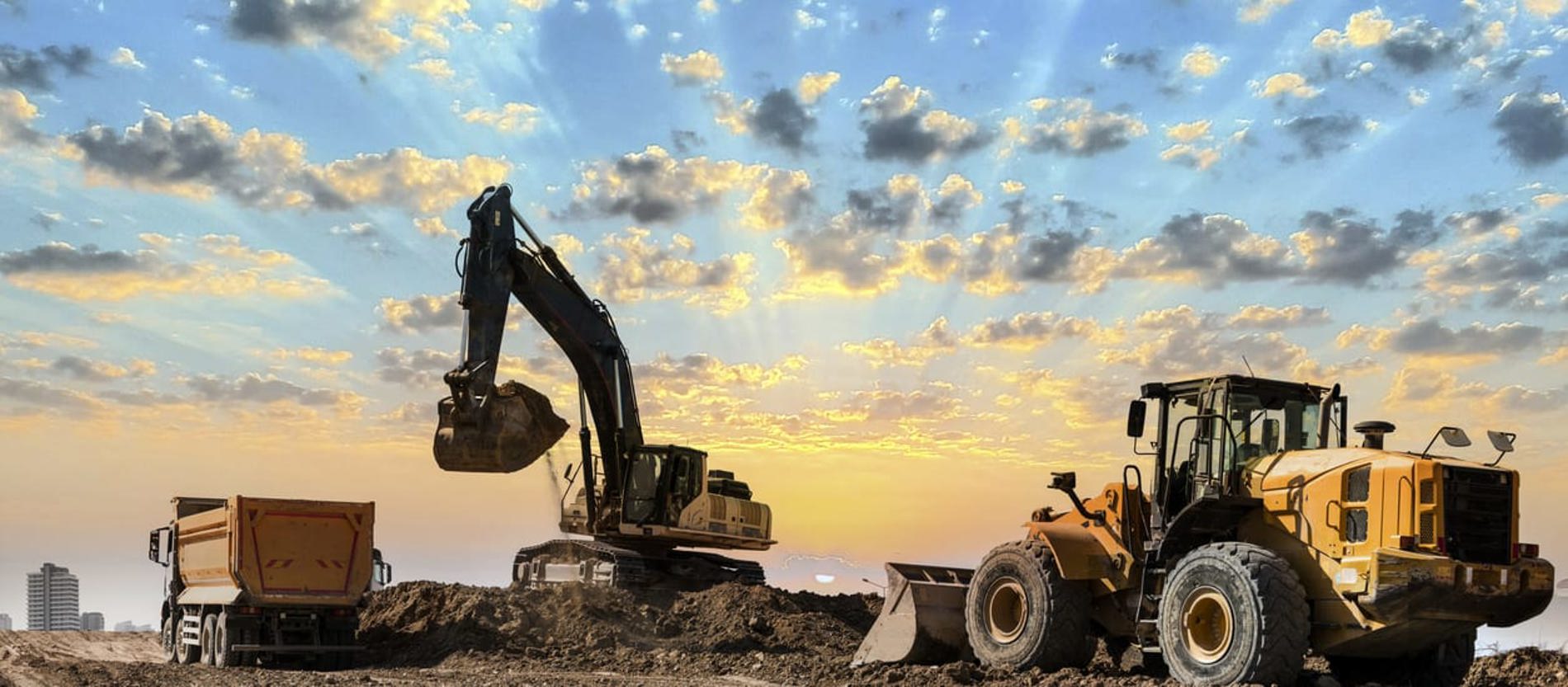
Surveying Services in Louisiana

Surveying Services in Louisiana
Key Takeaways
Understanding the importance of land surveying is essential for preventing property disputes and ensuring compliance with zoning regulations, particularly during construction projects.
In Louisiana, various types of land surveys, such as boundary, topographic, and subdivision surveys, serve specific functions critical for property transactions and land development.
Selecting a qualified land surveyor with the right experience, licensing, and local knowledge is crucial for achieving precise and reliable survey results.
Understanding Land Surveying Services

Land surveying involves measuring and mapping the physical features of land, an activity essential for various applications, including boundary determination and infrastructure development. The primary reason for getting land surveyed is to determine property boundaries and features. Without accurate land surveying, you risk disputes over property lines and non-compliance with zoning regulations, both of which can lead to costly consequences.
Before embarking on any construction project, a land survey is vital. It helps in gaining necessary permits and ensures that the construction stays within property lines. Imagine the frustration of having to halt a project midway due to boundary disputes or zoning violations. Accurate land surveying prevents such scenarios, saving you time, money, and headaches.
Land surveyors play a critical role in providing the essential measurements and data needed for civil engineering projects. Their expertise supports the successful planning and execution of construction projects, ensuring that everything is built according to precise specifications. With their help, you can confidently move forward with your development plans, knowing that all aspects of your land have been accurately assessed and documented.
Types of Land Surveys in Louisiana
In Louisiana, several types of land surveys are commonly conducted to meet various needs. These include:
Boundary surveys, which define property lines
Topographic surveys, which map the terrain
Subdivision surveys, which facilitate land development
Lot surveys, which provide detailed information about individual parcels
Flood elevation certificates, which assess flood risk
Each type of survey serves a specific purpose, whether it’s defining property lines, mapping the terrain, or facilitating land development.
Understanding the different types of land surveys is crucial for choosing the right one for your project. In the following subsections, we will explore boundary surveys, topographic surveys, and subdivision surveys in greater detail, shedding light on their unique applications and benefits.
Boundary Surveys
Boundary surveys are critical in defining the exact property lines of a parcel of land. These surveys determine the boundaries of a property, which is essential for preventing disputes and ensuring that all parties are clear on property limits. Whether you’re buying a new home, selling property, or planning a construction project, a boundary survey is indispensable.
Marking property corners and locating easement lines establishes a clear and legally recognized outline of your land. This detailed information helps in property transactions, development projects, and even in resolving neighborly disputes over property line.
Southern survey services offer boundary surveys and lot survey to ensure clarity and precision in land ownership.
Topographic Surveys
Topographic surveys visually depict the land’s physical characteristics, illustrating the various features found in a specific area. These surveys capture both natural and man-made features, creating contour maps that depict the land’s surface. Accurate terrain representation is crucial for land development, planning, and infrastructure projects, guiding informed decision-making. A topographic survey is essential for these processes.
Modern topographic surveys often utilize advanced technology such as drones and 3D laser scanning. Drone surveying allows for the rapid collection of aerial data, enabling surveyors to cover land more quickly than traditional ground methods. Surveys conducted with drones can yield data quality comparable to that of ground-based surveys but are executed more efficiently.
3D laser scanning enables surveyors to create detailed terrain models by measuring laser beam reflections to generate precise point clouds. These technological advancements in topographic surveying significantly enhance the quality and speed of data collection. They provide highly detailed and accurate information that is invaluable for planning and executing construction projects.
Using these cutting-edge tools, Southern survey services deliver topographic surveys with a full range of precision and efficiency.
Subdivision Surveys
Subdivision surveys are essential for transforming larger parcels of land into smaller plots suitable for development. These surveys divide existing land into smaller lands, facilitating residential and commercial development. Subdivision surveys are particularly important in urban planning and real estate development, where efficient land use and orderly growth are paramount.
Subdivision surveys conducted by land surveyors ensure compliance with local zoning regulations and planning requirements. This subdivision survey process often involves public hearings and coordination with local authorities to secure necessary approvals.
Southern survey services provide subdivision surveys, supporting community growth and development.
Choosing the Right Land Surveyor
Selecting the right land surveyor is pivotal for your project’s success. A land surveyor typically requires a degree in surveying and geomatics, along with a license to operate in their state. Verify a surveyor’s qualifications and licensing through your state’s land surveyor association website to ensure you are hiring a qualified professional.
Experience and regional familiarity are also important factors to consider. A surveyor’s knowledge of local land conditions and regulations can significantly affect the overall cost and quality of the survey. Consulting friends or colleagues for recommendations can be a helpful step in finding a reputable surveyor.
Inquire about licensing, insurance, references, process, timeline, and fees when hiring a land surveyor. Consider whether to choose an independent professional or a larger firm, as each option has distinct pros and cons. By carefully evaluating these aspects, you can select a land surveyor who will provide reliable and accurate services for your project.
Commercial Land Surveying Services
Commercial land surveying services play a vital role in planning and executing construction projects. Topographic surveys reveal elevation changes and land contours, aiding in construction project planning. These surveys provide a detailed view of the terrain, including elevation changes and natural features, which is crucial for architects and engineers.
Initial survey data from land surveyors is crucial for architects to design projects that accommodate the landscape. This information ensures that construction projects are planned with precision, avoiding costly errors and ensuring compliance with regulations.
Commercial land surveying services offered by southern survey services play a critical role in the successful execution of construction and development projects.
Mapping and Elevation Certificates
Mapping services and flood elevation certificates are particularly important in Louisiana. Flood elevation certificates assess flood risk and determine insurance requirements. These certificates are mandated by the Federal Disaster Protection Act for properties in Special Flood Hazard Areas to secure federal funds.
Surveyors conduct floodplain mapping to manage risks and obtain necessary permits for property development. Raising homes or foundations may require specialized surveys and elevation certificates to comply with local regulations.
Southern survey services provide comprehensive mapping and elevation certificate services to help property owners and developers navigate these requirements.
Latest Technology in Land Surveying
The latest technology in land surveying is revolutionizing the industry. Modern surveying techniques employ advanced technology like GPS and total stations for improved measurement precision. GPS/GNSS technology facilitates precise positioning and enhances efficiency in land surveying.
Drones equipped with high-resolution cameras and LiDAR sensors enhance data collection speed and detail. These technologies enable surveyors to navigate challenging terrains and obstacles, providing accurate and detailed project data. The use of automation and robotics, such as robotic total stations, further improves productivity and efficiency in surveying.
Southern survey services utilize these advanced technologies to deliver highly detailed 3D mapping and precise boundary assessments. The integration of artificial intelligence and cloud-based collaboration tools also streamlines surveying processes and enhances data sharing. These technological advancements ensure that land surveying services are more accurate, efficient, and accessible than ever before.
Summary
In summary, land surveying services are indispensable for property and construction projects in Louisiana. Accurate land surveys help determine property boundaries, support infrastructure development, and ensure compliance with regulations. Various types of surveys, including boundary, topographic, and subdivision surveys, cater to different needs and applications.
The latest technological advancements in surveying, such as drones, GPS, and 3D laser scanning, have significantly improved the precision and efficiency of these services. By choosing the right land surveyor and leveraging modern technology, you can ensure the success of your projects. Consider professional surveying services to support your property and development needs, and navigate the complexities of land management with confidence.
Frequently Asked Questions
Why is land surveying important before construction?
Land surveying is essential before construction to accurately determine property boundaries and ensure compliance with zoning regulations, thereby preventing disputes and costly mistakes. Proper surveying facilitates obtaining necessary building permits and lays a solid foundation for the project.
What are the common types of land surveys in Louisiana?
The common types of land surveys in Louisiana are boundary surveys, topographic surveys, and subdivision surveys, each serving to define property lines, map terrain features, and facilitate land development. These surveys are essential for accurate land management and planning.
How can I choose the right land surveyor?
To choose the right land surveyor, ensure they are properly qualified and licensed, have relevant experience, and are familiar with your region. Additionally, inquire about their processes, timelines, fees, and seek recommendations from trusted sources.
What role do topographic surveys play in commercial projects?
Topographic surveys are crucial in commercial projects as they deliver detailed insights into the terrain's elevation and natural features, facilitating informed planning and design decisions. Their comprehensive data ensures that projects are aligned with the site's unique characteristics.
How does modern technology improve land surveying?
Modern technology significantly enhances land surveying by utilizing tools such as GPS, drones, and 3D laser scanning, which improve precision, efficiency, and data quality. This advancement facilitates navigation in challenging terrains and yields highly detailed mapping for various projects.



